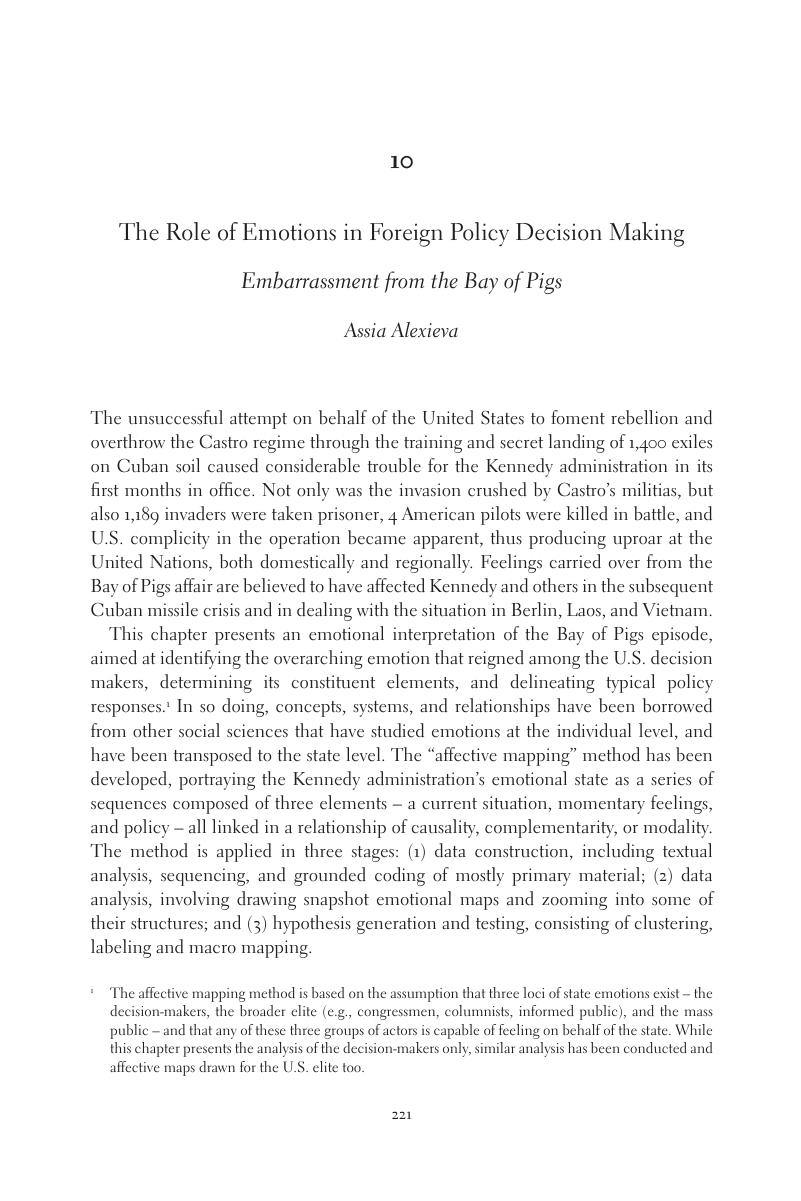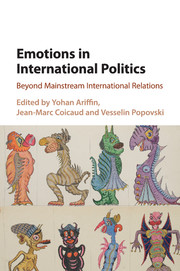Book contents
- Emotions in International Politics
- Emotions in International Politics
- Copyright page
- Contents
- Notes on Contributors
- Foreword
- Book part
- Introduction
- Part I Towards an Interdisciplinary Analysis of Emotions in International Politics
- Part II Emotions in Foreign Policy Decision Making and in War and Peace
- 9 Assessing the Role of Emotives in International Relations
- 10 The Role of Emotions in Foreign Policy Decision Making
- 11 Shadow of Guilt: U.S.-Rwandese Relations after the 1994 Genocide
- 12 Emotions and Passions of Death, and the Making of World War II: The Cases of Germany and Japan
- 13 From Group Identity to Ethnic Violence
- 14 Exceptionalism, Counterterrorism, and the Emotional Politics of Human Rights
- 15 The Dialectic of Rage
- 16 Transforming Conflict: Trust, Empathy, and Dialogue
- 17 The Role of Emotives in the International Management of Plant Genetic Resources
- Conclusion
- Index
- References
10 - The Role of Emotions in Foreign Policy Decision Making
Embarrassment from the Bay of Pigs
from Part II - Emotions in Foreign Policy Decision Making and in War and Peace
Published online by Cambridge University Press: 05 December 2015
- Emotions in International Politics
- Emotions in International Politics
- Copyright page
- Contents
- Notes on Contributors
- Foreword
- Book part
- Introduction
- Part I Towards an Interdisciplinary Analysis of Emotions in International Politics
- Part II Emotions in Foreign Policy Decision Making and in War and Peace
- 9 Assessing the Role of Emotives in International Relations
- 10 The Role of Emotions in Foreign Policy Decision Making
- 11 Shadow of Guilt: U.S.-Rwandese Relations after the 1994 Genocide
- 12 Emotions and Passions of Death, and the Making of World War II: The Cases of Germany and Japan
- 13 From Group Identity to Ethnic Violence
- 14 Exceptionalism, Counterterrorism, and the Emotional Politics of Human Rights
- 15 The Dialectic of Rage
- 16 Transforming Conflict: Trust, Empathy, and Dialogue
- 17 The Role of Emotives in the International Management of Plant Genetic Resources
- Conclusion
- Index
- References
Summary

- Type
- Chapter
- Information
- Emotions in International PoliticsBeyond Mainstream International Relations, pp. 221 - 253Publisher: Cambridge University PressPrint publication year: 2016
References
Primary Sources
Secondary Sources
- 2
- Cited by

